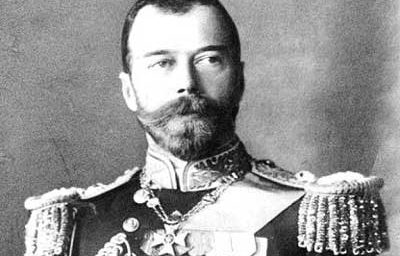Intelligence Czar — Or Eunuch?
Speculation and bureaucratic wrangling about the reshaping of the Intelligence Community continues in the wake of the Tenet resignation.
NYT — Tenet’s Departure May Ease An Overhaul Of Intelligence [RSS]
The departure of George J. Tenet as director of central intelligence may remove one obstacle to an overhaul that would make him the last person to hold the job in its current form, prominent members of Congress and some members of the commission investigating the Sept. 11 attacks say.
Both the commission, in its review of the attacks, and the Senate Intelligence Committee, in its review of prewar intelligence on Iraq, are preparing reports that are expected to place blame for the intelligence failures in part on the current structure, in which a single person both leads the Central Intelligence Agency and, with limited budget and management authority, oversees all intelligence agencies, officials involved in the internal discussions say.
“You can’t wait on reform,” Senator John D. Rockefeller IV of West Virginia, the top Democrat on the Intelligence Committee, said in a telephone interview on Monday. In a speech last month, Senator Pat Roberts, the Kansas Republican who is the panel’s chairman, said the committee’s findings, still awaiting declassification by the C.I.A., “literally beg for reform.”
***
Most proponents of restructuring intelligence agencies argue that the country’s primary intelligence chief needs more power, not less, to control budgets, resolve disputes, avoid overlap and fill gaps among the many intelligence agencies. But any recommendation for change would face resistance from agencies like the Pentagon that could lose power in a reorganization, and it is not clear whether any plan could win approval before Congress ends an abbreviated session in this election year.
The national intelligence post’s creation was a central recommendation of a joint Congressional investigation of the Sept. 11 attacks, an inquiry on which Mr. Roemer also served. He said he would urge the independent commission to make the same recommendation, although he would not predict the outcome of the panel’s deliberations.
“We need a centralized authority for these 15 disparate agencies,” Mr. Roemer said. “I generally support the concept of a director of national intelligence.”
Robert Gates, [RSS] DCI under President George H.W. Bush, argues that we are “Racing To Ruin The C.I.A. if we create a separate intelligence czar. He believes that, politically, the Secretary of Defense and other IC officials would wind ups still having budgetary control and we would wind up with a “eunuch” without the “troops” that the current DCI has by also heading the CIA. Instead, Gates proposes bolstering the DCI’s powers:
First, we should give the director of central intelligence total budget authority over all aspects of the National Foreign Intelligence Program. In short, give him the authority to unilaterally move people and money among the agencies and elements of the national intelligence program. Then he could not only set priorities, but also make sure the agencies carry them out. In this, he might be required to consult with the secretary of defense — but not to seek the Pentagon’s concurrence. The director of central intelligence alone would be held accountable for his decisions to the intelligence committees and armed services committees of Congress.
Second, for those agencies that have military as well as intelligence responsibilities — like the National Security Agency and the National Geospatial-Intelligence Agency — the secretary of defense should have to send his nomination of their leaders to the intelligence director, who would decide whether to appoint them. Their tenure, too, would be determined by the director of central intelligence.
In addition, the president and Congress, on a bipartisan basis, should agree on a long-term growth rate for the intelligence budget. Intelligence is a profession of experience. Clandestine field officers, analysts and technical collection programs all require 5 to 10 years to develop, on average. The security challenges we face, terrorism above all, will be with us for many years. Budgets are too often raised after a crisis or catastrophic event only to be reduced two or three years later as memory fades. This is a formula for inadequacy and failure. Predictability of resources is essential.
Also, the failures of our agencies related to Islamic terrorism and Iraqi weapons of mass destruction make clear the need for changes in the way analysis and clandestine operations are conducted at the C.I.A. That will be the challenge facing the new leadership at the agency, and it should be the subject of discussions among the next director of central intelligence, the president and the Congressional intelligence committees. Sorting the solutions out in public is not conducive to more effective American intelligence gathering.
While I’ve got no heartburn with Gates’ suggestion, I fail to see why we could muster the political will to make the DCI, in effect, an intelligence czar but an actual intelligence czar would necessarily be a eunuch.





I don’t see how creating another intelligence organization would help. What we need is greater cooperation/communication between intelligence agencies.
Just a law enforcement agencies city, county, state and federal must work together. I see no reason the CIA, FBI, BATF, etc.. can’t work together.
I have a friend who was in the sheriff’s dept. and they were getting almost no cooperation solving a bank robbery spree from the local city police. The robber would be out of the city before the police could react but they still wouldn’t notify other agencies in a timely manner. He finally got some timely communication which helped nab the guy.
I know that is a simplistic view but I still think communication is the key not another bureaucracy.
It seems to me that 1) running the CIA is a full-time job, and 2) the intel czar should have real power, and–above all–impartiality. He (or she) should not be tied to one agency (e.g., the CIA) above the others.
—